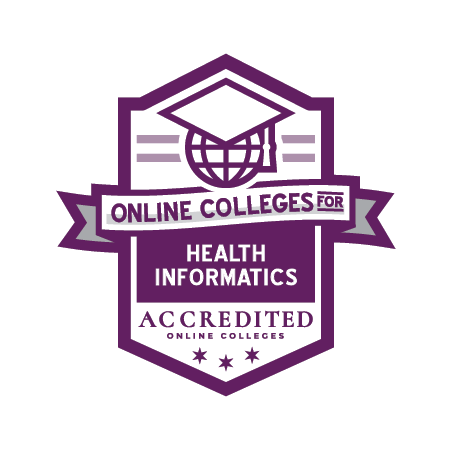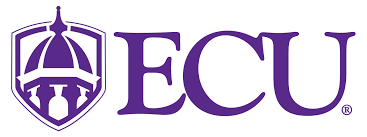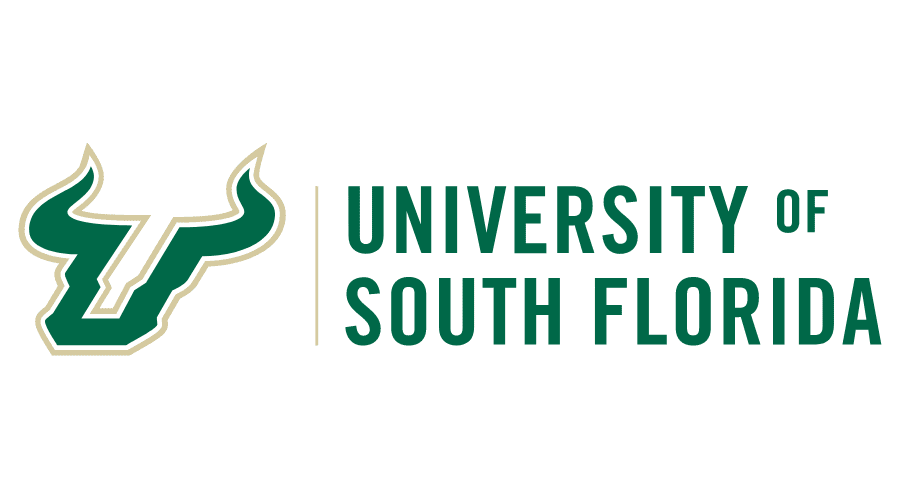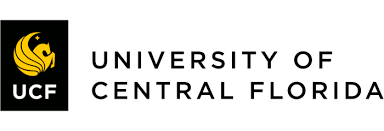With a degree in health informatics, you’ll be poised to start a career – or advance an existing one – in an industry that enjoys some of the strongest job security and growth in the nation.

As you’ll see in this health informatics programs ranking, the healthcare field has some of the strongest job-growth potentials in the country, according to data from the Bureau of Labor Statistics (BLS). What’s more, the earning potential is typically strong.
With a degree in health informatics, you’re poised to drive the industry forward by understanding how to interpret and apply data to improve healthcare provision. You can do so in many different settings, too, from hospitals to government agencies to health clinics.
See Also: 30 Accredited Pharmacy Schools Online
What Will You Learn in a Health Informatics Program?
The degree programs we’ve identified on this list are grounded in either health information management or health informatics and analytics. These are two of the most popular and commonly chosen degree programs in this field. Why? It’s simple! Both programs are relevant to the technologies and data at the heart of health informatics.
There is a growing need for qualified professionals who understand healthcare data and systems as the world continues to move its functioning online. As a student studying informatics and analytics, you’ll learn about the kind of software and technology used to manage patient data. You’ll also learn how to analyze and interpret patient data. Then, you’ll learn to apply what you’ve learned from the data to improve patient care and organizational efficiency.
The courses you take might also include the following:
- Computer Science
- Project Management
- Data Analytics
- Medical Informatics
- Health Information Systems
- Information Science
- Information Security
- Systems analysis
Furthermore, you might take electives that explore a specialization like electronic health records, bioinformatics, or population health. General courses in healthcare services, health policy, and healthcare delivery are to be expected as well. A practicum experience might be part of your undergraduate requirements for graduation as well.
Of course, the topics you study might differ depending on the type of program, too. For example, undergraduate programs in health informatics mostly focus on introductory topics, with some advanced studies occurring during the third and fourth years of your studies.
However, a health informatics master’s degree tends to be much more focused and advanced. For example, while you might take a general computer science course during your undergraduate years, you might take a course on database design as a graduate student.
Ultimately, no matter which program you choose from this list, and no matter if you study part-time or full-time, you’ll get a well-rounded education that provides you with the knowledge and skills you need to be a successful health informatics professional. This is true whether you study in Massachusetts, Denver, or San Diego. Likewise, programs at the University of Michigan, Northeastern University, and Columbia offer generally similar programs for completing your education.
See Also: 30 Accredited Online Colleges in Healthcare Management
What Kind of Career Could You Get By Completing One of These Health Informatics Degree Programs?
A common role for graduates of a health informatics program is a health information technologist. The BLS reports favorably on the job-growth prospects for people working in these fields, with a projected 17 percent increase in demand over the next decade. Likewise, this career pays well, with a median annual salary of more than $55,000.
Another option is to become a medical records specialist. This health informatics career is expected to experience slightly faster than average growth of 7 percent over the next ten years. It pays well, considering you don’t need a bachelor’s degree. The yearly median wage is more than $46,000.
The projected job growth for medical and health services managers is more impressive. According to the BLS, this niche of health informatics is estimated to grow by 28 percent in the coming decade. This represents a demand for more than 136,000 new jobs during that timeframe. The pay is also excellent for this career – the median yearly salary is more than $101,000.
See Also: Accredited Healthcare Schools – 30 Top Online Options
What is the Earning Potential for a Health Informatics Major?
Your precise salary depends on many factors, not the least of which is your official job title. Your level of education and experience, certifications or licensures, and even the location where you work can also affect your income.
Using the examples given above, health information technologists can earn anywhere from about $30,000 per year to nearly $100,000 per year. In the same timeframe, medical records specialists can earn anywhere from $30,000 to more than $74,000. Medical and health services managers can earn between $60,000 and $205,000 per year.
Another occupation that could be open to you with this degree is working as an administrative service manager. According to the BLS, this career has a median salary of around $97,930. The pay range extends from about $59,000 to more than $161,000 per year.
These are just a few options. Many more career paths are available in this field, though not all pay as well as those mentioned above. However, given the high demand for qualified health informatics workers, there’s a good chance of making an excellent living no matter your job title.
See Also: 30 Accredited Online Colleges in Health Education
What are the Best Health Informatics Degrees?
Accredited Online College uses the most recent data from the Department of Education’s National Center for Education Statistics to rank the health informatics programs below.
Each program receives an individual score. That score is compared to all other universities offering that degree to determine the final score you see by each ranking. Accredited Online College considers the affordability, student-to-faculty ratio, and the number of programs offered on-campus and online.
For more information, see our methodology page.
See Also: 10 Accredited Masters in Clinical Research Online
1. University of Washington
The University of Washington was founded in 1861. One of the oldest higher education institutions on the West Coast, its many academic colleges offer over 1,800 courses each quarter. Tens of thousands of students attend UW annually in part because the university ranks among the top universities worldwide.
UW’s 42-credit Master of Science program is offered by the School of Nursing and the School of Medicine. It’s geared toward working healthcare professionals who want to understand more about how IT is used in a clinical setting. You’ll cover topics that include:
- nursing
- public health
- biomedical informatics
The informatics UW prerequisites include taking a basic descriptive and inferential statistics course. Additionally, you should have a minimum of one year of experience in a healthcare supervision role.
This master’s program costs around $30,000 to complete. The same tuition rate applies whether you live in Washington or are an out-of-state student. Ample financial aid opportunities are available to help offset the upfront costs of the program.
2. CUNY School of Professional Studies
Located in the heart of New York City, the CUNY School of Professional Studies is known both in its hometown and nationwide for its top-rated online educational offerings. Academic programs at CUNY are primarily for adults who want to finish their degree or advance beyond an existing associate’s. The school also offers programs for those who want to earn a master’s degree or specialized certificate.
CUNY SPS’ Bachelor of Science in Health Information Management prepares you to develop, implement, and handle health information across different systems. You’ll cover topics like:
- health statistics
- information technology systems
- health services organization and delivery
Your training in cutting-edge information management technology software will position you well for future career opportunities.
Tuition rates at CUNY SPS are around $305 per credit for part-time online undergraduate students. Full-time online students pay a flat rate of $3,465 per semester. In-person tuition is $620 per credit whether you study full-time or part-time.
3. University of Cincinnati
The University of Cincinnati is a public research institution founded in 1819. This makes it the longest-standing institution of higher education in Ohio. The University of Cincinnati has a student body of nearly 50,000 students. Plus, according to recent U.S. News & World Report rankings, the school is one of the best national universities.
UC’s Master’s in Health Administration is a fully online, 40-credit program. There are no mandatory campus visits. The curriculum is competency-driven, so you have the opportunity to link your academic learning to real-world, practical applications. Additionally, this program does not require GRE or GMAT scores to apply.
Tuition and fees are $754 per credit for in-state students and $769 per credit for non-resident students. It’s worth keeping an eye on the school’s tuition page, as its rates are subject to change.
4. Liberty University
Liberty University is located in Lynchburg, Virginia, and got its start in 1971. Liberty is a private Christian university with a quarter million alums worldwide. You can choose from over 700 programs taught by more than 2,500 professors.
Liberty’s BS in Informatics – Healthcare Informatics is entirely online with a curriculum structured into eight-week courses. You must complete 120 credit hours to graduate, which most students can do in three-and-a-half years.
As a healthcare informatics student, you’ll cover topics like:
- The foundations of pharmacology
- Healthcare informatics
- Coding and classification
- Healthcare systems
This bachelor’s degree costs around $390 per credit hour. However, this figure doesn’t necessarily include all fees associated with the program. With that said, the institution’s tuition for all levels of study has stayed the same since 2015. Liberty’s tuition page features more information on online program fees.
5. East Carolina University
East Carolina University, located in Greenville, North Carolina, was founded in 1907. The school was originally a teacher-training institution but is now a comprehensive doctoral-granting university.
ECU’s Bachelor of Science in Industrial Technology is a degree-completion program. This means it’s for students who already have an associate’s degree in applied science in an industrial or technical subject area. There are eight concentrations to choose from, including one in Health Information Technology. You’ll take courses that include:
- Quality Management in Health Care
- Technical Writing
- Introduction to Statistical Process Control
- Health Care Payment Systems
- Health Information Management
Tuition and fees come to $7,325 per year for state residents living on campus, with non-residents paying $23,602 per year while living on campus. You can use the tuition calculator to determine a more precise cost of this degree as an online student.
6. University of Wisconsin
The University of Wisconsin was founded in Madison in 1848 and is the flagship institution in the University of Wisconsin system. Today, UW-Madison is a large research university with 13 colleges and schools, nearly 50,000 students, and more than 24,000 faculty and staff.
As a student at UW-Madison, you can pursue a Bachelor of Science in Health Information Management and Technology. This is a degree-completion program comprising 61 credits. Most students can complete the requirements for graduation in just two years.
Again, this bachelor’s degree is for students who already have an associate’s degree in a related field. If you qualify, you’ll be able to earn your bachelor’s while paying less tuition than if you were to undertake a full-length bachelor’s program.
UW-Madison Online’s programs are an attractive option with a flat tuition rate. As an undergraduate, you’ll pay around $450 per credit hour, regardless of your state of residence. You’ll still want to check out the school’s tuition page to see if additional fees apply to your program.
7. University of Utah
The University of Utah was founded in 1850 in Salt Lake City as the first university in the Utah System of Higher Education. As a student at Utah, you’re encouraged to become a lifelong learner. To do so, you’ll have opportunities to learn outside of the classroom. This includes more than 600 recognized student organizations and other resources.
The U’s Master’s in Biomedical Informatics features an Applied Clinical Informatics track. This program prepares you to work with healthcare systems in roles like data manager or data analyst. Coursework is structured around tasks such as system diagnostics and managing healthcare projects. Throughout the two-year program, you’ll also take courses in:
- systems modeling
- statistics
- clinical information systems architecture
Tuition varies depending on residency and the number of credit hours taken. For example, a Utah resident pays $1,1713.86 per credit, while a non-resident student pays $4,959.18 per credit. To get up-to-date tuition and fee information, explore the University of Utah’s tuition and fee schedules for residents and non-residents.
8. Western Governors University
Western Governors University is a private university based in Salt Lake City, Utah, with further opportunities offered online via distance learning. WGU was the first institution to make all of its undergraduate and graduate programs competency-based, with online programs developed in partnership with industry-leading employers.
WGU offers a Bachelor’s in Health Information Management that develops your knowledge in health information management and technologies. You can apply for RHIA credentialing as part of this health informatics WGU program. Additionally, you’ll gain a well-known CompTIA certification that is highly transferable. You’ll also take courses in the following:
- Organizational Leadership in Healthcare
- Introduction to Pharmacology
- Healthcare Compliance
- Healthcare Reimbursement
- Introduction to Healthcare IT Systems
At WGU, you’ll pay approximately half the cost of the national average for tuition when obtaining a bachelor’s degree – $7,452 per year. If you pursue a master’s degree, you’ll pay around $7,842, a significant savings compared to the $36,832 average.
9. University of South Florida
Part of the State University System of Florida, the University of South Florida offers nearly 200 undergraduate majors and concentrations across its schools and colleges. Based in Tampa Bay, the university also has campuses in Sarasota-Manatee and St. Petersburg. In total, these campuses attract around 50,000 students.
USF Health is a great place to earn your Master’s in Health Informatics. This is a two-year program with 32 credits required for graduation. Each class is eight weeks long, so you can study each subject intensively before moving to the next subject.
Upon graduation, you will be eligible to sit for a number of certification exams. This includes, but is not limited to:
- American Health Information Management Association (AHIMA) – Certified Health Data Analyst (CHDA)
- Healthcare Information and Management System Society (HIMSS) – Certified Associate in Healthcare Information and Management Systems (CAHIMS)
- HIMSS – Certified Professional in Healthcare Information and Management Systems (CPHIMS)
- AMIA Health Informatics Certification (AHIC)
- Project Management Institute (PMI) – Certified Associate Professional in Project Management (CAPM)
This master’s degree program costs $907 per credit, regardless of your residency status. This excludes fees and books. If you want to save money, you can complete a USF health informatics certificate instead of completing a full degree.
10. Ferris State University
Ferris State University was founded in 1884 in Big Rapids, Michigan. Ferries State offers degrees in seven colleges and boasts a low student-to-faculty ratio. Campus facilities have been kept to a high standard thanks to partnerships with industry leaders who provide superior technology for students.
The courses in Ferris’ Bachelor’s in Health Information Management are custom-designed for the web rather than being ported from an existing on-campus curriculum. You’ll take essential courses in:
- health information management
- information technology
- health informatics
For admission, you’ll need a minimum 2.5 GPA and an associate’s degree from an accredited health information technology program. You must also have successfully passed appropriate math and English courses.
This bachelor’s degree costs $476 per credit hour or approximately $13,076 annually. This rate applies to U.S. and Canadian residents, with international students paying around $765 per credit hour or $21,420 annually. Additionally, there is a slight tuition increase in your junior and senior years.
11. University of Minnesota
The University of Minnesota’s campus is spread across several Saint Paul and Minneapolis locations. More than 52,000 students call this university home, supported by around 20,000 faculty and staff members.
UMN’s Master of Health Informatics includes 36 credits and is entirely online. This program prepares you to analyze, implement, and evaluate numerous software packages and other technologies in the healthcare industry. You’ll learn how to build and maintain healthcare databases, along with studies in biostatistics and health informatics. Most students graduate from this program in about two years.
Tuition at UMN varies from program to program, and online programs have their own rates. For residents, this program charges $1,539 in tuition and fees, while non-residents pay $2,381.50. In most cases, there are no financial aid restrictions for online programs.
12. University of Illinois at Chicago
The University of Illinois at Chicago is home to more than a dozen academic schools and colleges. As such, the university offers nearly 200 bachelor’s degree programs and minors, 100 graduate programs, and more than 60 doctoral programs. With a student-to-faculty ratio of 18:1, you can learn in an intimate environment, no matter your program of choice.
The University of Illinois Chicago health informatics degree is a Master of Science in Health Informatics. The program features a concentration in Health Data Science if you want to gain additional data science and analytics knowledge. Additionally, two post-master’s certificates are available: a Post-Master’s Certificate in Health Informatics (PMC HI) and a Post-Baccalaureate Certificate in Health Informatics (PBC HI).
As part of your studies, you’ll take courses in the following:
- Communication Skills in Health Informatics
- Management of Healthcare Communication Systems
- Topics in Health Informatics
- Information Sources in Biomedical & Health Information Sciences
UIC health informatics tuition varies on your level of study. Resident undergraduates pay just under $18,000 per year for full-time studies. UIC Masters in Health Informatics students pay $750 per credit hour. Visit the school’s financial aid page for a full list of UIC’s rates on a per-program basis.
13. Franklin University
Founded in 1902 as a predominantly adult-oriented institution of higher education, Franklin University has since expanded to more than 25 locations across the Midwest. One of the biggest private universities in the state of Ohio, Franklin’s main campus is in Columbus.
This university offers a Master of Science in Health Informatics that helps you harness the power of data analysis to help drive positive changes in the healthcare industry. The program requires 32 credits to complete, which can be done in as little as one year. This is a hybrid program with online coursework and some face-to-face requirements.
You’ll take classes in the following areas:
- Big Data Analytics and Data Mining
- Introduction to Analytics
- Healthcare Analytics
- Healthcare Strategic Management
Franklin University charges $21,440 in tuition for this program. The university offers the ability to lock in your tuition rate when you enroll so that it won’t change for the duration of your studies.
14. Florida International University
Founded in 1965, Florida International University belongs to the State University System of Florida. It has grown into the biggest educational institution in the Greater Miami area. Its student body exceeds 56,000 learners, and many unique awards and rankings have been bestowed upon the university in recent years.
At FIU, you can enroll in a Master’s in Health Informatics & Analytics. This program teaches you how to improve patient well-being by properly applying health information. The program lasts 16 months and is entirely online. Coursework follows an integrated curriculum that blends knowledge and theory with business skills in courses like:
- Healthcare Project Management
- Business Statistical Analysis
- Foundations of Health and Analytics Administration
- Healthcare Database Systems
This program also includes either a capstone or a practicum component. The capstone involves solving real-world problems with thorough research and applying essential skills you’ve learned in the program. The practicum experience places you in a health informatics work setting to provide you with hands-on experience using your newly developed skills.
Tuition for this program is $27,500 for Florida residents. Non-residents pay $30,000. These figures do not include fees, books, supplies, or other personal expenses.
15. University of Central Florida
The University of Central Florida is in Orange County, offering a central location for on-campus students. A public research institution, UCF is also part of the State University System of Florida. With a total enrollment reaching nearly 70,000, UCF has one of the largest student bodies in the nation.
The UCF health care informatics program culminates in a Bachelor of Science in Health Informatics and Information Management. The program requires 120 credits to graduate. Taught in the College of Community Innovation and Education, this program has previous rankings among the nation’s best online programs by U.S. News & World Report. The UCF health informatics curriculum takes a broad approach, preparing you for many careers in health information management with courses like:
- Data analysis
- Database administration
- Medical records management
- Information technology
UCF Online has dozens of fully online programs, with free access to scholarship information and other useful resources. At the undergraduate level, you’ll pay $179.19 per credit as an in-state student and $715.80 per credit as an out-of-state student. UCF health informatics masters courses, such as those in the Master of Science in Healthcare Informatics program, cost $772.69 per credit.
16. University of North Carolina
Dating back as far as 1795 when the inaugural class began its studies, the University of North Carolina was the first and remains the only public university in the nation to have awarded college degrees in the 18th century. The university’s commitment to providing a quality education is unchanged more than 200 years later.
Available as a traditional campus-based or online program, UNC’s Master’s in Biomedical and Health Informatics teaches you how to handle large-scale projects, manage health data, and develop systems that improve healthcare quality. Your degree could lead to a career as a healthcare analyst, health IT specialist, or clinical systems coordinator.
This program also requires that you complete a 400-hour internship. With the university’s close ties to biotech and IT companies in the Research Triangle, you might find relevant internship placements with some of the most cutting-edge companies in the nation.
Tuition is $933.46 per credit for residents of North Carolina. If you live out of state, you’ll pay $1,949.68 per credit.
17. Western Kentucky University
Western Kentucky University was founded in 1906 in Bowling Green, Kentucky. Students here are known as Hilltoppers and choose from dozens of academic majors and minors. In recent years, WKU has earned many recognitions for its teaching quality and performance, making it a solid choice for your undergraduate studies.
WKU offers two tracks associated with its Bachelor’s in Health Information Management. The HIM Plus 2 Program is fully online and is a good choice if you have an existing associate’s degree in a related field. The HIM 100% Online Bachelor’s degree is a better option if you don’t have an existing associate’s degree.
Each degree program covers the essential knowledge and skills needed by professionals working in health information management. For example, you’ll study finance, information technology, and healthcare law, to name a few.
Undergraduate tuition is $463 per credit hour for in-state students. If you’re an out-of-state student, your tuition is $1,125 per credit hour. Distance learning tuition is $551 per credit for in-state and out-of-state students alike.
18. University of Mississippi Medical Center
Don’t let the name mislead you; the University of Mississippi Medical Center comprises seven health science schools, making it highly equipped for your health informatics degree. Over 3,000 students are enrolled, and among the three purpose-built hospitals on campus is the only children’s hospital in the state.
You can earn a Bachelor’s in Health Informatics and Information Management at UMMC. The curriculum affords you a hands-on, functional approach directly applicable to your tasks in a healthcare information management role. Your courses might include the following:
- Coding & Classification Systems
- Electronic Health Records & Informatics
- Health Care Systems Design & Project Management
- Legal Foundations in HIIM
Upon graduation, you will be eligible for the Registered Health Information Administrator (RHIA) exam offered by the American Health Information Management Association (AHIMA).
Tuition is $400 per credit hour for resident students and $1,173 per credit hour for non-residents.
19. Grand Canyon University
Grand Canyon University is a private Christian university. As a student, you’ll have access to undergraduate and graduate programs, with many programs available entirely online.
GCU ranks highly for factors including the affordability of student housing, earning potential after graduation, and the survival rates of startups nurtured by its graduates.
GCU’s BS in Health Information Management takes an approach that focuses on five key areas:
- Information governance
- Information protection
- Informatics, analytics, and data use
- Compliance
- Healthcare business and leadership
You’ll study courses within each domain, preparing you for leadership or data management roles in the healthcare industry.
Online tuition varies from program to program, with most falling between $340-$485 per credit hour. Check out the university’s tuition page for more information and scholarship opportunities.
20. University of Missouri
The University of Missouri was founded in 1849 and has grown to comprise 19 academic schools and colleges. Students here champion Mizzou’s four core values: respect, responsibility, discovery, and excellence. As a Mizzou student, you can do the same while studying health informatics.
Mizzou’s online Master of Science in Health Informatics shows you how to work with and manage the various IT systems within healthcare organizations. If you hold a minimum of three years of experience in a related field, you could benefit from this program to further your career.
This is a 33-credit program that takes about two years to complete. It’s accredited by the Commission on Accreditation for Health Informatics and Information Management Education (CAHIIM).
There is one tuition rate – $874.80 – whether you live in Missouri or out of state. With fees added in, you’ll pay $890.50 per credit hour. All told, you’ll pay around $29,400.00 for this degree.
21. Purdue University
Purdue University was founded in 1869. It has been ranked as the fifth-most innovative school in the nation by U.S. News & World Report, and what’s more, nearly 60% of its students graduate without any student debt. Purdue is accredited by the Higher Learning Commission.
Purdue’s Bachelor of Science in Health Information Management involves 15-18 hours of study each week, with each term lasting for ten weeks. The program comprises 180 credits, which takes four years for most students to complete. You’ll gain real-world experience in a local healthcare setting. This 120-hour externship helps you apply what you’ve learned in a hands-on setting.
Purdue Global offers some generous credit-transfer policies in addition to awarding credit for other experiential learning. Current service military members may also receive tuition discounts. To calculate the cost of attendance, check out the calculator on the university’s website.
22. Davenport University
Davenport University has campuses throughout Michigan but also offers distance-learning programs. The university was founded in 1866 with just 16 students. Today, it has its own Excellence System, which ensures that learning links to real-world competencies that matter most to future employers, such as critical thinking and communication.
Comprising a minimum of 120 credits, this Bachelor of Science in Health Information Management is entirely online. In fact, it is the only fully online program of its kind in the state. This program is accredited by CAHIIM. Davenport University accreditation comes from the Higher Learning Commission.
The estimated undergraduate tuition for an online program at Davenport is $885 per credit hour for state residents and $598 per credit hour for non-residents. The lower out-of-state rate reflects a Davenport Tuition Grant of $287 per credit. These figures do not include fees, books, and other expenses.
23. Herzing University
A private university located in Milwaukee, Herzing University offers career-focused degree programs in areas such as nursing, business, and tech. The school was founded in 1965 and is accredited by the Higher Learning Commission. Herzing is also a non-profit institution.
Herzing’s online Health Information Management programs are CAHIIM accredited. Classwork revolves around the tasks you need to be familiar with in a healthcare information management role. Both associate’s and bachelor’s degree paths are available, as well as an MBA. Courses cover foundational knowledge, diagnostic coding, compliance, and more.
One of the benefits of this program is that you study online. You can also study at your own pace, working around your occupational and family obligations.
Herzing University tuition per semester is not published on its website. However, you can still calculate your cost of attendance through the school’s tuition calculator.
24. Oregon Tech
Oregon Tech, which has campuses in Klamath Falls, Portland, and online, was founded in 1947 as a vo-tech school for veterans of World War II. Today, Oregon Tech is a polytechnic school with degrees in various fields, including:
- technology
- engineering
- healthcare
It’s a small school with fewer than 5,000 students and boasts a student-to-faculty ratio of just 16:1.
Oregon Tech’s Bachelor of Science in Health Informatics is a four-year program based on experiential learning. You’ll explore case studies, hands-on exercises, and the practical application of healthcare technology in real-world settings. To develop these skills, you’ll take courses in the following:
- Healthcare IT
- Computer Programming
- Medical Terminology
- Digital Security
- EHR Implementation
Additionally, you’ll gain competency in data analytics, systems analysis, and database design.
Tuition at Oregon Tech is $294 per credit hour for undergraduate studies. This rate is independent of your residency status.
25. Arizona State University
Arizona State University Online offers degrees and programs in dozens of areas at the undergraduate, graduate, and doctoral levels. Your studies at ASU Online benefit from the same coursework, course requirements, and professors as students who complete their degrees on campus in Tempe, Arizona.
ASU Online is a leader in online education. In fact, it’s a top ten “best buy” among public universities. ASU Online is also among the best schools in the nation for graduate studies and ranks first in the nation for innovation.
The Master of Advanced Study in Health Informatics from ASU Online is a 30-credit program. Most students can complete the degree requirements in about a year. Each of the ten courses is 7.5 weeks long, which allows you to concentrate on one course at a time. You’ll take classes in the following areas:
- Clinical Decision Support and Evidence-Based Medicine
- Health Informatics Database Modeling and Applications
- Health Information Communication
- Health Economics, Policy and Payment Models
- Leadership and Professionalism
Tuition at ASU Online is the same whether you live in Arizona or not. The estimated tuition is around $8,336 per semester for nine credits of coursework.
Frequently Asked Questions
Is an Online Degree as Good as a Traditional Degree?
In this case, it depends on what you classify as a “good” degree. Online degree programs have improved immensely with the growth of the internet and e-learning technology. As such, the tools for delivering online content are better than ever and frequently include highly interactive learning platforms.
Most universities use the same faculty for their online programs as their campus-based offerings. At the very least, online students usually work through the same curriculum as their on-campus counterparts. For example, if on-campus students take courses in healthcare administration or nursing informatics and are required to complete research projects, you will as well as an online student.
The exception is that these programs are commonly asynchronous, meaning you choose when you study rather than reporting to class at specific times. This flexibility is nice for working professionals who need to study around their occupational schedule.
Regarding your degree transcript, it’s common practice for the university not to include that you completed your degree online. That means you’ll have a regular transcript from the university instead of having a different transcript than your on-campus peers.
Do Online Degrees Cost More or Less Than Traditional Degrees?
While we can’t say with absolute certainty that no university charges more for its online programs, the general rule is that most online studies tend to be at least as affordable as traditional degrees. Most colleges and universities publish their traditional and online tuition rates on their websites, and we’ve linked to many of them in this article.
In many cases, online tuition is more affordable than campus-based tuition. Online students typically pay on a per-credit basis instead of lump-sum tuition charges. However, there may be additional fees for you as an online learner that other students don’t pay, such as a technology fee.
Bear in mind that it’s not just tuition expenses that you minimize as an online learner. You won’t pay room and board fees nor the meal plan costs that campus-based students pay. You’ll also save on transportation or commuting costs, as you’ll most likely be working from a single location, such as your home.
What are the Admission Requirements for a Health Informatics Degree?
There is no easy answer to this question, as admission requirements vary from one institution to the next. Of course, the admission requirements aren’t necessarily as stringent as a pre-medical program, but one university might ask for a lower cumulative GPA than another.
Generally speaking, you’ll find that the admission requirements for a health informatics program such as those outlined above averages out to about a 2.5 cumulative GPA needed for admission. You might also need to submit your high school transcripts – or their equivalent – in addition to providing up to three letters of recommendation and a personal essay.
There are degree-completion programs available for students who already hold an associate’s degree in a related area. These allow you to develop your associate’s degree into a bachelor’s degree in a much shorter period of time. However, if you’re applying to one of these, you’ll be expected to demonstrate successful completion of your associate’s program. Likewise, you might need to submit a resume or CV, letters of recommendation, or an essay.
Do You Need a Degree to Find a Career in Health Informatics?
College can be expensive, so you should know what you want to get out of it before enrolling in a program. Some careers in the healthcare industry do not require a degree. For example, according to the BLS, medical assistants may find an entry-level role with a postsecondary, non-degree award.
If you’re not yet certain about whether a degree is for you, roles such as the one listed above can be a good means of gaining experience that can help you decide whether the career is for you. Moreover, it will also give you a competitive edge during the admissions process if you decide to pursue a degree.
Medical assistants perform a range of administrative and clerical or data-related tasks within a healthcare setting. A career like this is a good indicator of the work you’ll do if you complete a health informatics or information degree.
If you’re interested in pursuing higher education, then you should check out the 30 Top Accredited Online Colleges With Low Tuition and the 30 Best Nationally Accredited Online Colleges!
























